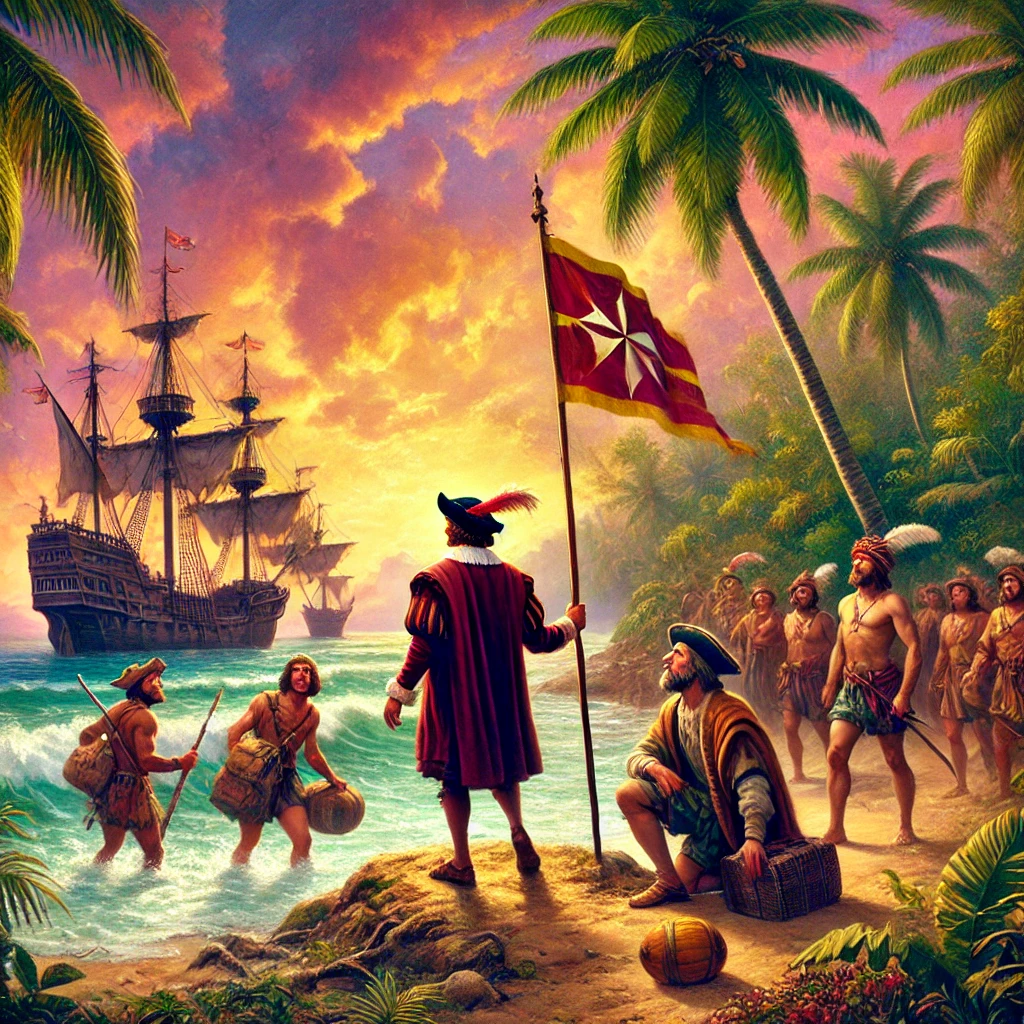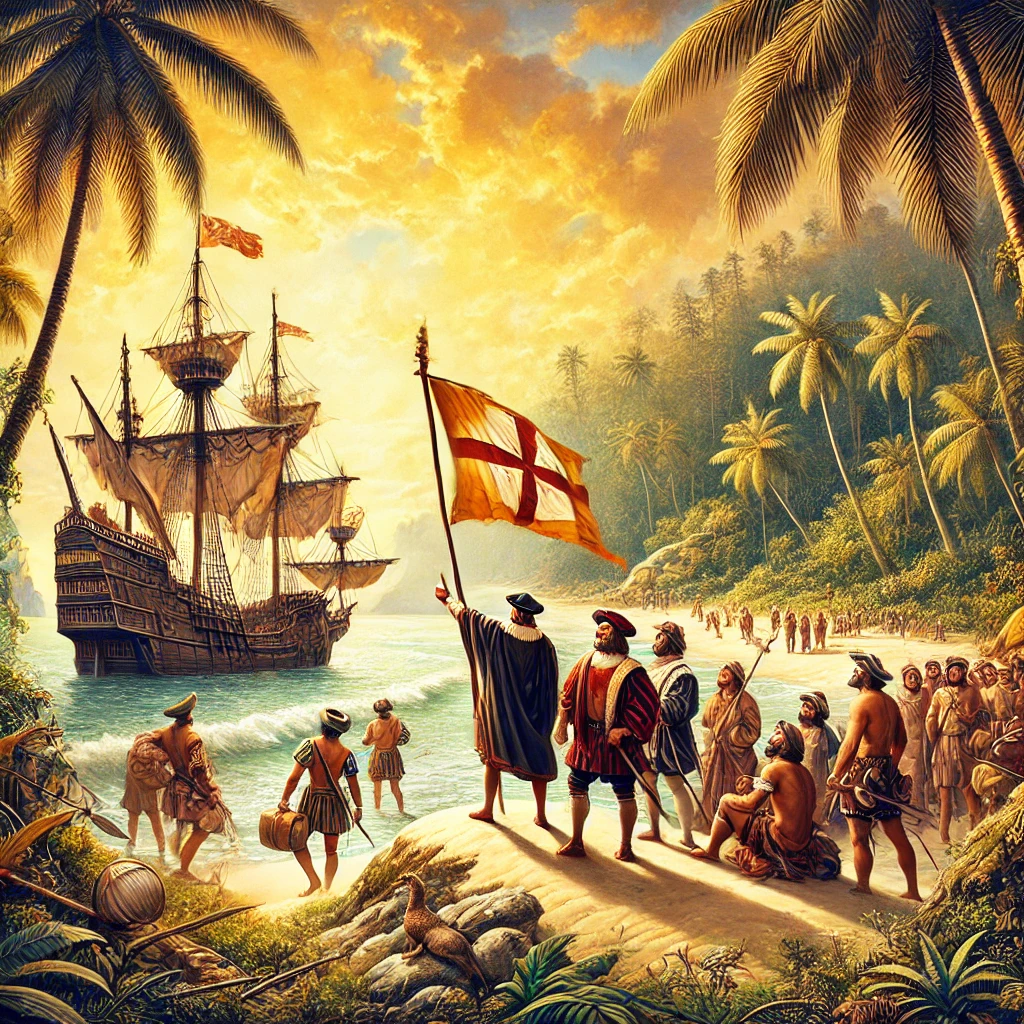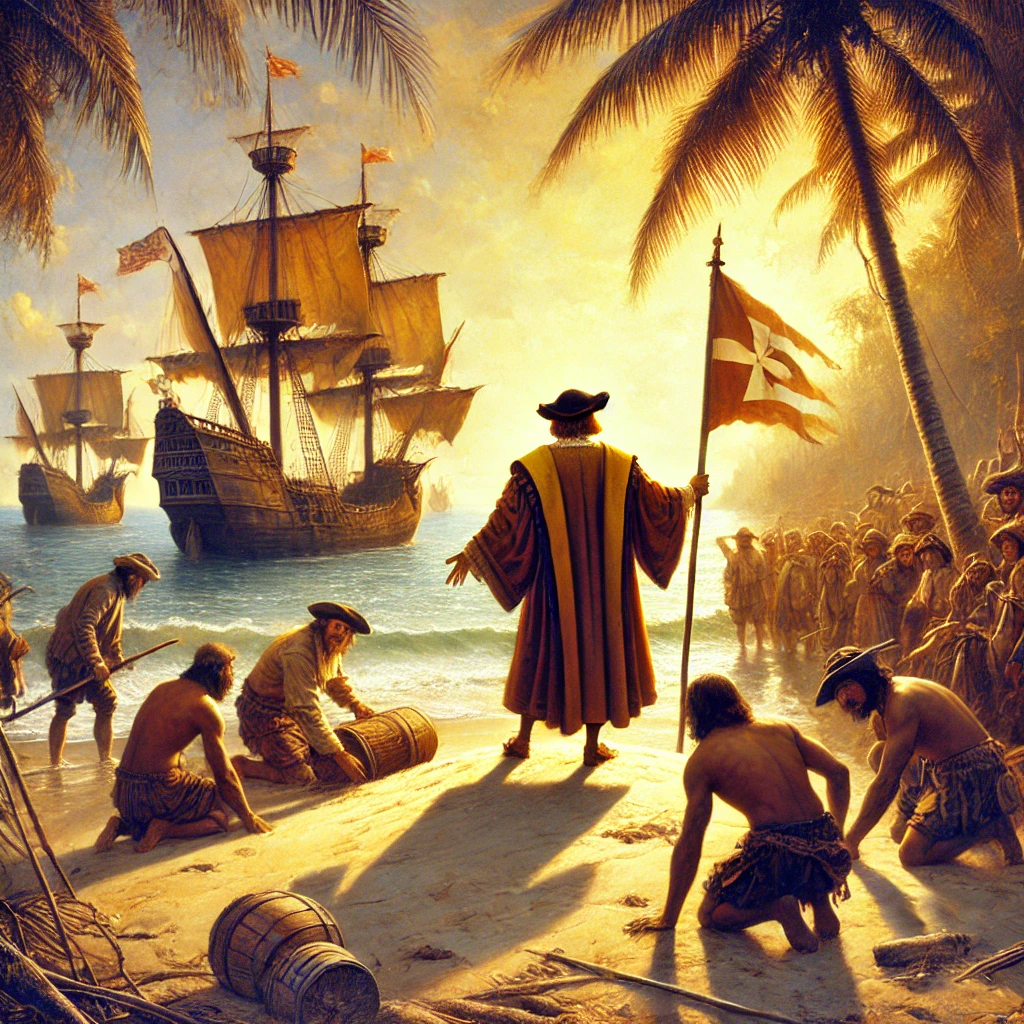On October 12, 1492, Christopher Columbus, an Italian explorer sailing under the Spanish flag, reached what is now known as the Bahamas, marking the first encounter between Europe and the Americas. This momentous event is often hailed as the beginning of sustained European exploration and colonization of the Americas, fundamentally altering the course of history for both the Old World and the New World. Columbus’s voyage opened the door to a new era of exploration, expansion, and ultimately, conflict.

The Voyage of Discovery
Christopher Columbus embarked on his historic journey in 1492 with the backing of King Ferdinand and Queen Isabella of Spain. His goal was to find a westward route to Asia, seeking new trade routes for spices and other valuable goods. Equipped with three ships—the Niña, the Pinta, and the Santa Maria—Columbus set sail from Spain in August 1492, braving the uncharted waters of the Atlantic Ocean.
After weeks of uncertainty and navigating through treacherous seas, Columbus and his crew finally made landfall on October 12, 1492. Upon reaching the island of Guanahani, which he named San Salvador, Columbus believed he had discovered a new route to Asia. The indigenous peoples he encountered, known as the Taíno, greeted him with curiosity and hospitality, unaware of the profound changes that would soon unfold in their world.

The Impact of Columbus’s Discovery
Columbus’s arrival in the Americas marked a significant turning point in global history. While the land was already inhabited by diverse indigenous cultures, Columbus’s voyages set off a chain reaction of exploration and colonization by European powers. Over the subsequent decades, explorers and settlers from Spain, Portugal, France, and England would follow in Columbus’s wake, leading to the establishment of colonies and the exploitation of resources.
The introduction of European customs, agriculture, and diseases had devastating effects on indigenous populations. Many Native Americans suffered catastrophic declines in population due to diseases brought by Europeans, to which they had no immunity. This demographic shift, coupled with the violence of colonization, fundamentally altered the social and cultural landscape of the Americas.
The Legacy of Columbus’s Voyage
Columbus’s voyages had profound implications for the world, including the establishment of the Columbian Exchange—a widespread transfer of plants, animals, culture, human populations, and diseases between the Americas and the Old World. This exchange led to significant agricultural changes and the introduction of new crops that would transform diets across the globe. Crops such as potatoes, tomatoes, and maize became staples in Europe, while European livestock and grains were introduced to the Americas.

However, the legacy of Columbus is complex and contentious. While he is often celebrated as a pioneering explorer, his expeditions also initiated centuries of colonization, exploitation, and violence against indigenous peoples. The narrative of discovery has evolved, leading to a reassessment of Columbus’s role in history and discussions about the impact of European colonization on native populations.
Reassessment and Reflection
In recent years, Columbus’s legacy has come under scrutiny, leading to debates about the celebration of Columbus Day and the recognition of Indigenous Peoples’ Day in many regions. Advocates for indigenous rights argue that the focus should shift toward acknowledging the resilience and contributions of native cultures that existed long before European contact.
The arrival of Christopher Columbus in the “New World” on October 12, 1492, marks a pivotal moment in history that reshaped the course of global exploration and cultural exchange. While his voyages opened the door to new opportunities and connections, they also brought significant challenges and suffering to indigenous peoples. As we reflect on this momentous event, we recognize the complexities of history and the importance of acknowledging all perspectives, ensuring that the stories of those affected by colonization are heard and honored. The legacy of Columbus serves as a reminder of the interconnectedness of our world and the enduring impact of exploration, both positive and negative.
